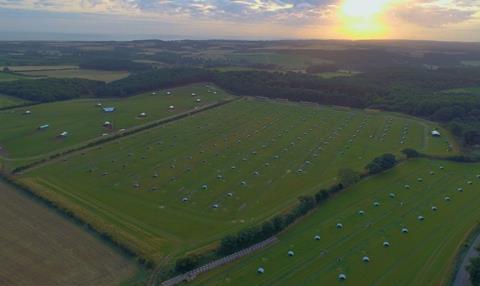Pilgrim’s Pride Ltd has revealed plans to reduce the carbon footprint across all of its 15 sites in the UK as part of a new sustainability strategy.

The strategy, Pilgrim’s UK 2030, features five sustainability pillars which look to build upon the company’s sustainability positions and extending these across its entire supply chain.
The five pillars which form the strategy are sustainable farming, food production, products, packaging and business and community.
As part of the sustainable production pillar, Pilgrim’s Pride is introducing new ways of working to develop new operational practices across its 15 sites, with the aim of improving site efficiency and therefore reducing the environmental footprint of the businesses.
“Investing in the future is vital for farming. We partner with over 800 UK pig farmers and 600 lamb farmers and our local, resilient and British farming supply chain meant that we were able to safely continue to feed the nation during Covid-19."
The programme looks to build on Pilgrim Pride’s work in antibiotic usage, soya reduction and alternative feeding programmes and genetic evaluations.
Andrew Saunders, agriculture director at Pilgrim’s Pride, said: “Investing in the future is vital for farming. We partner with over 800 UK pig farmers and 600 lamb farmers and our local, resilient and British farming supply chain meant that we were able to safely continue to feed the nation during Covid-19.
“Our aim is to be the partner of choice for the UK farming industry and our unique business model, where we own all of our own livestock, rewards our farmers for high quality and animal welfare, and also provides total control over veterinary inputs and diet formulation.”
Matt Dight, head of sustainability at Pilgrim’s Pride, said: “More than ever, people are thinking about the footprint of the food they eat. Our vision is built upon a locally resilient, higher-welfare supply chain. Our manufacturing targets – focusing on areas such as human rights, biodiversity, energy, water and waste - are aligned with UN Sustainable Development Goals, enabling us to future-proof the business.
“In the last 12 months, we have seen a significant reduction in our environmental footprint across our own sites, alongside improved biodiversity on our farms and reduced water and energy usage. We are the best-forming in the industry in terms of food waste, with just 0.1% waste, and are working towards a circular ‘no waste’ economy, whilst 100% of the electricity we use across our manufacturing operations is purchased from the grid as renewable.”
This story was originally published on a previous version of the Meat Management website and so there may be some missing images and formatting issues.












